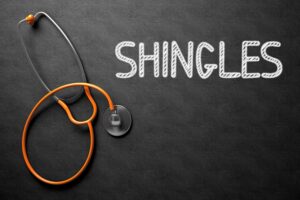Managing and Preventing Shingles

Personal Care at Home in Lodi CA
As your elderly family member gets older, you may hear more about something called shingles. But what is shingles and what does your senior need to know about it? The most important thing to know is that shingles is more of a concern for older adults who may have a weakened immune system. People of any age can experience a shingles outbreak, however.
Causes of Shingles
Shingles is a viral infection related to chickenpox. Once someone has chickenpox, the virus never leaves the body even though the infection is no longer active. That virus remains inactive for many years and can then reactivate causing shingles. Shingles is more common as people age, particularly if their immune systems are compromised.
Shingles Symptoms
Before breaking out in a rash from shingles, your senior may experience pain, tingling, or other odd feelings in the skin on her torso. The skin may be sensitive to the touch and the rash is likely to be red and irritated. Eventually, the rash breaks out into blisters that swell and break open. The rash and blisters may be extremely itchy, which adds complication to healing.
Can Shingles Be Contagious?
For a lot of people, shingles is not contagious. But if someone has never had chickenpox, an active outbreak of shingles can pass the virus to that person. If someone does contract the virus from another person who has shingles, they’ll develop chickenpox instead of shingles. The best solution is for everyone helping your senior to avoid direct contact with any open blisters or sores from the shingles rash.
Managing and Treating Shingles
Shingles brings with it a variety of complications, including the potential for neurological issues, skin infections, and even vision loss. Postherpetic neuralgia is also common, which means pain continues after the rash clears. Shingles is usually treated with oral antiviral medications, but there are other treatments that might be used if your senior has severe pain and a worse case.
Soaking in a cool bath or using cool compresses directly on the blisters can help to relieve pain and itching. Having help from personal care at home helps your senior to feel less alone and ensures that there’s someone there with her. Personal care at home can remind your senior to take her medications and can keep an eye on how her shingles outbreak is progressing.
Preventing Shingles
If your elderly family member has already had chickenpox, she is at risk of developing shingles. The best option is to get vaccinated against shingles. The vaccine cannot guarantee that your senior won’t experience a shingles breakout, but it can help to reduce the severity and length of the outbreak. It may also help to reduce the risk of your senior developing postherpetic neuralgia.
Reducing stress is something else that can help your senior if she’s dealing with a shingles outbreak. Personal care at home can ensure that your elderly family member is eating healthy meals, that her home is clean, and that she’s able to relax and to rest as much as possible.
If you or an aging loved one is considering personal care at home in Lodi, CA, please contact the caring staff at Provident Care Home Care today at (209) 578-1210.
- Creating a Plan for Aging in Place - July 26, 2024
- What Can Families Do to Help Seniors Avoid Boredom and Depression? - July 19, 2024
- Helping Seniors With Alzheimer’s or Dementia Sleep Better - July 12, 2024
